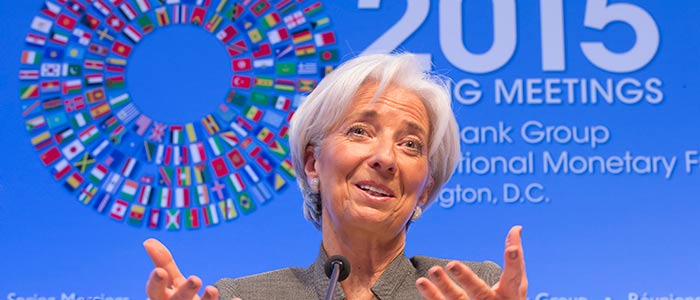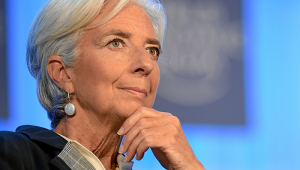WEb_IMF_ChristineLagarde_17169021875_5ac675797e_o.jpg

Christine Lagarde. Credit: IMF Staff Photo/Stephen Jaffe
Speaking at the 2017 Arab Fiscal Forum in Dubai earlier today, the managing director of the International Monetary Fund stressed that changes to what and who is taxed “should go hand in hand” with how countries go about collecting these taxes.
“This coordinated, simultaneous effort can help countries avoid some of the time consuming troubles of the past,” she explained.
“Traditionally, policymakers would often start with new tax policies and worry about administrative capacity later. By interlinking the two elements right away, countries can ‘leapfrog’ to a more advanced development stage.”
She pointed to Mauritania, which took a series of coordinated actions to improve its tax system while also strengthening its tax administration. This resulted in an 8 percentage point increase in government revenue between 2009 and 2014, from 20% of GDP to 28%.
To achieve similar gains, Lagarde urged countries to simplify codes and regulations, with regards to not only the laws on rates but also the laws establishing the power of tax agencies and the rights of taxpayers, and upgrade peoples’ skills and technical resources.
Modernised IT infrastructure allows taxpayers to file and pay their taxes more easily, as well as verifying compliance, for example.
“This is where your countries can take advantage of technological innovations – to ‘leapfrog’ into the digital age,” she stated.
Tax policies should all contain a five-to-ten-year revenue target, she continued, and a comprehensive plan should be in place that aims at “long term institution-building rather than short term fixes”.
Collecting and disseminating good data is also vital for making good decisions, she noted.
In oil-exporting countries in the Arab region that have been dealt a severe blow by the collapse in oil prices, policymakers should focus on diversifying revenue away from oil and gas, Lagarde continued.
A number of such nations are in the process of introducing a VAT or some consumption taxes for the first time. Lagarde suggested they could also consider introducing income and property taxes to derive additional revenues.
An agreement between the Gulf nations to establish a harmonised VAT could raise anywhere between 1% and 2% of GDP, if the rate is set at 5%, she pointed out.
In oil-importing countries, Lagarde said governments should focus on broadening the tax base, making the system simpler, more efficient and more equitable.
“Some of the key measures here include simplifying the rate structure and getting rid of exemptions, tax holidays and other carve-outs that only benefit a few and create opportunities for arbitrage,” she explained.
“More broadly, fiscal transparency and the sharing of reliable data are essential for the well-being of all countries. Why? Because they increase the accountability of governments and because they can boost the resilience of economies – and that includes lowering borrowing costs.”
While the IMF is now expecting the global economy to pick up this year and next, after a number of years of disappointing growth, Lagarde warned this “does not mean we are out of the woods”. Conflicts and lower oil prices will continue to impact government revenues in years to come.
“In the face of such uncertainty, countries need to build their resilience,” she urged. “Robust public finances are one way to create such resilience.
“Indeed, governments in this region and elsewhere need to increase their efforts to create a stronger and more reliable stream of revenue.”













